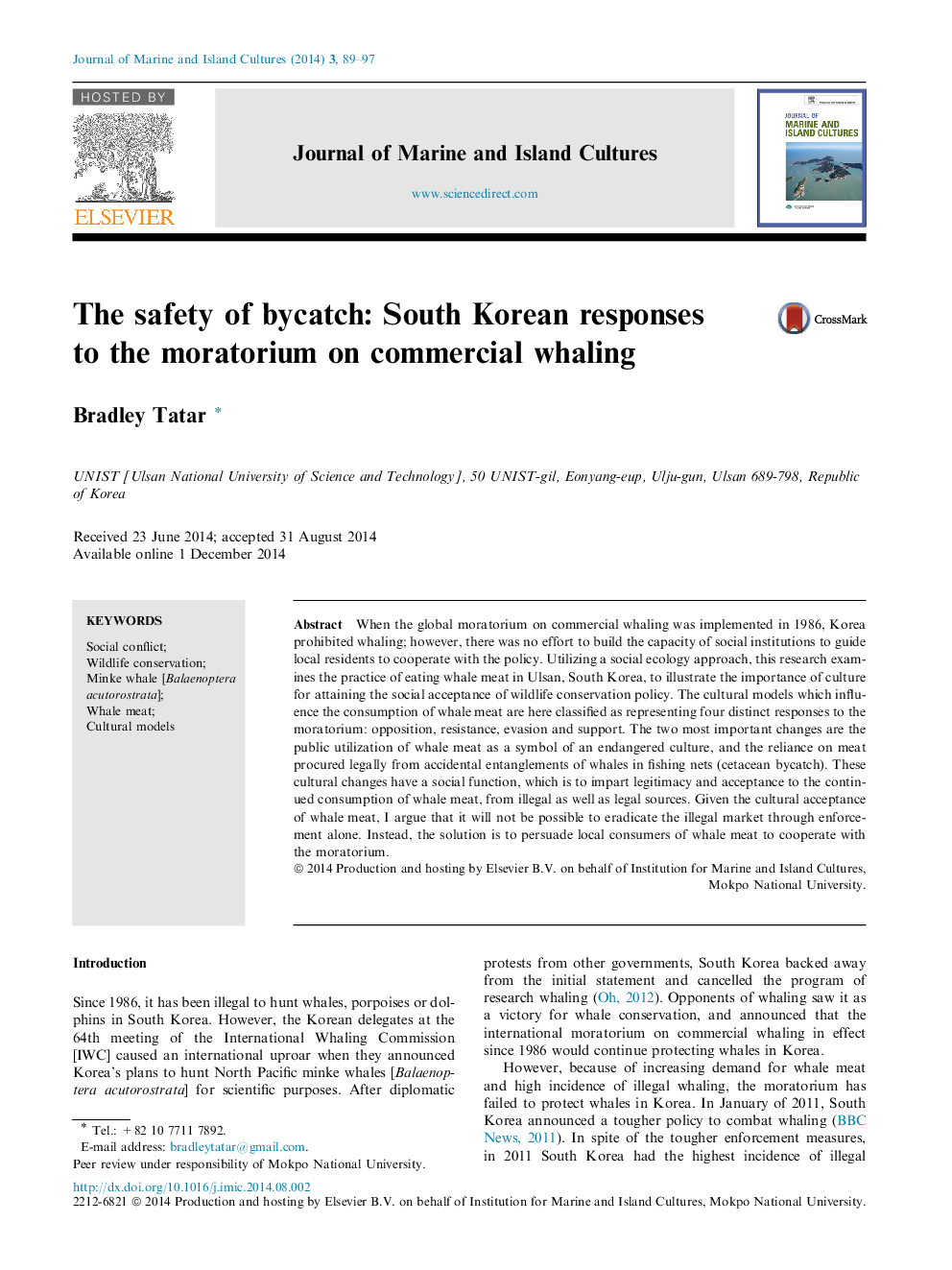| کد مقاله | کد نشریه | سال انتشار | مقاله انگلیسی | نسخه تمام متن |
|---|---|---|---|---|
| 1107056 | 954361 | 2014 | 9 صفحه PDF | دانلود رایگان |
When the global moratorium on commercial whaling was implemented in 1986, Korea prohibited whaling; however, there was no effort to build the capacity of social institutions to guide local residents to cooperate with the policy. Utilizing a social ecology approach, this research examines the practice of eating whale meat in Ulsan, South Korea, to illustrate the importance of culture for attaining the social acceptance of wildlife conservation policy. The cultural models which influence the consumption of whale meat are here classified as representing four distinct responses to the moratorium: opposition, resistance, evasion and support. The two most important changes are the public utilization of whale meat as a symbol of an endangered culture, and the reliance on meat procured legally from accidental entanglements of whales in fishing nets (cetacean bycatch). These cultural changes have a social function, which is to impart legitimacy and acceptance to the continued consumption of whale meat, from illegal as well as legal sources. Given the cultural acceptance of whale meat, I argue that it will not be possible to eradicate the illegal market through enforcement alone. Instead, the solution is to persuade local consumers of whale meat to cooperate with the moratorium.
Journal: Journal of Marine and Island Cultures - Volume 3, Issue 2, December 2014, Pages 89–97
